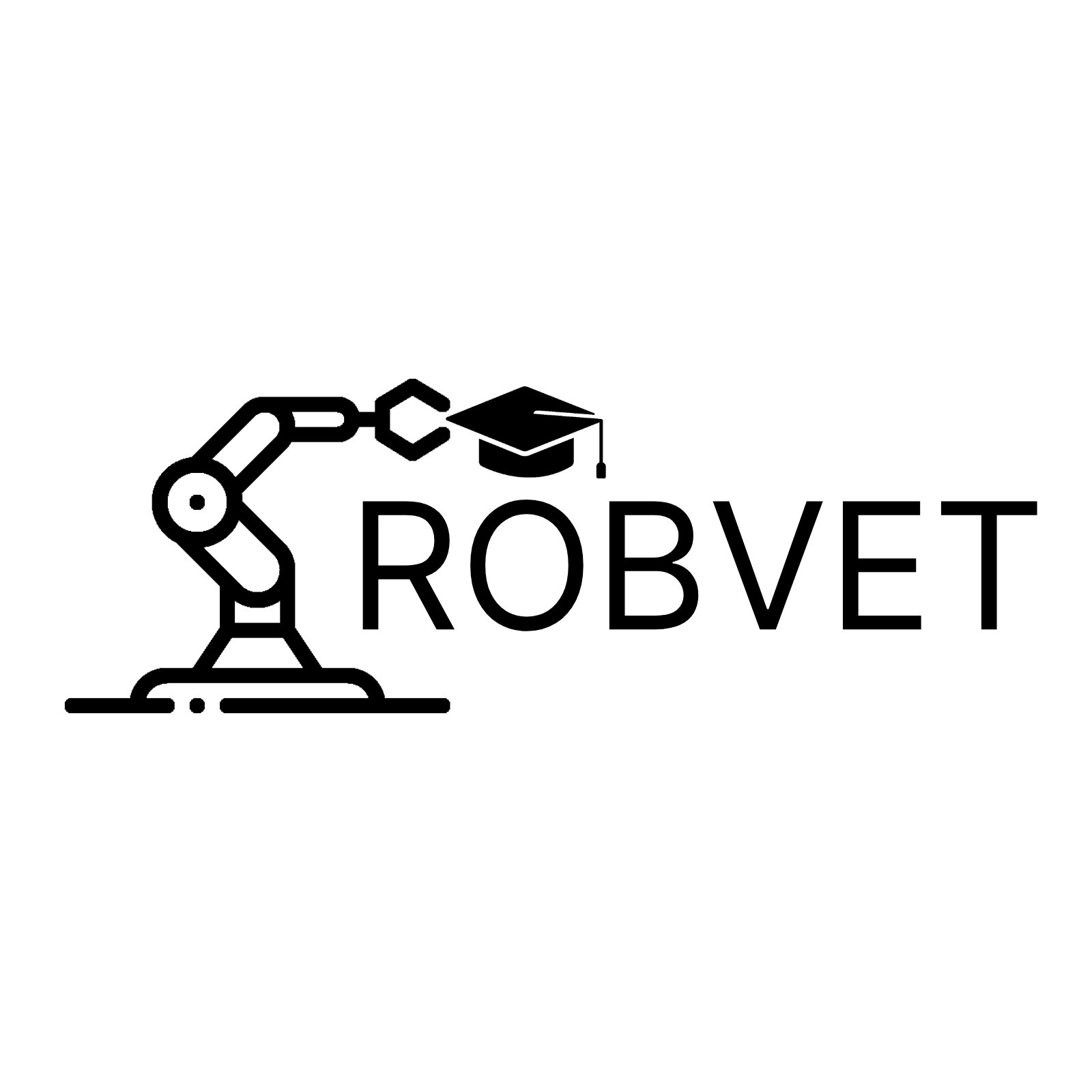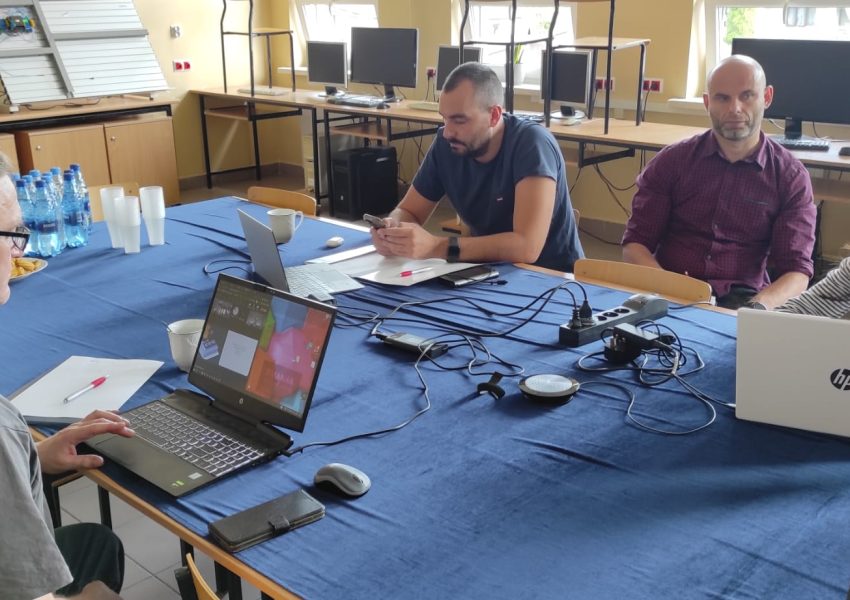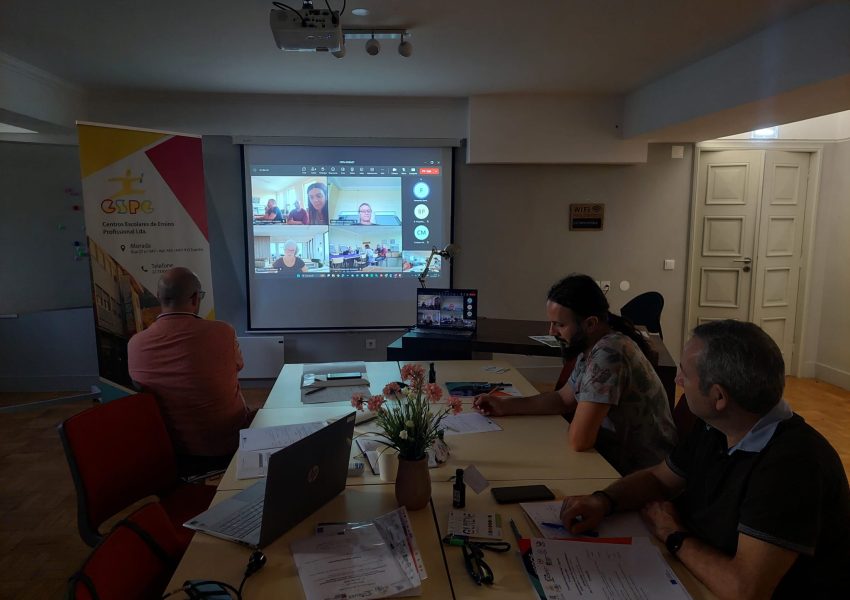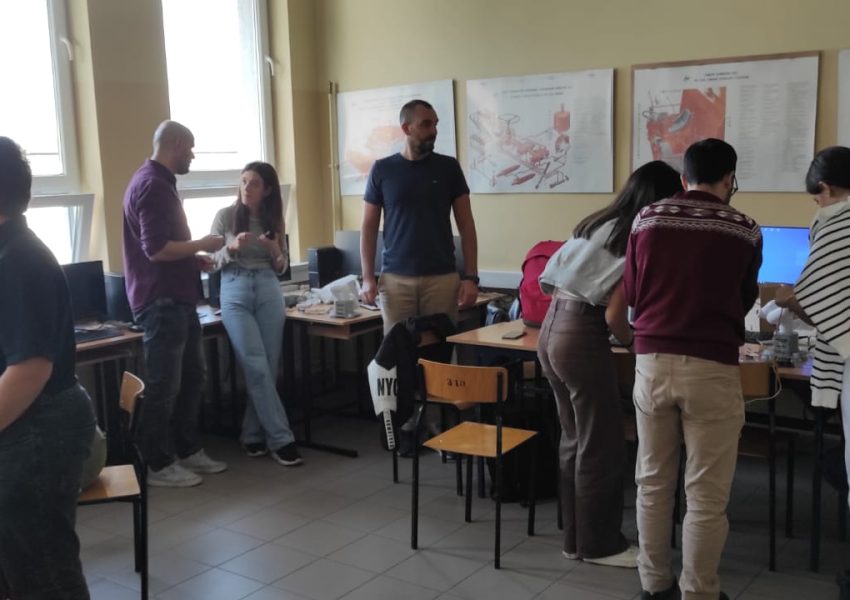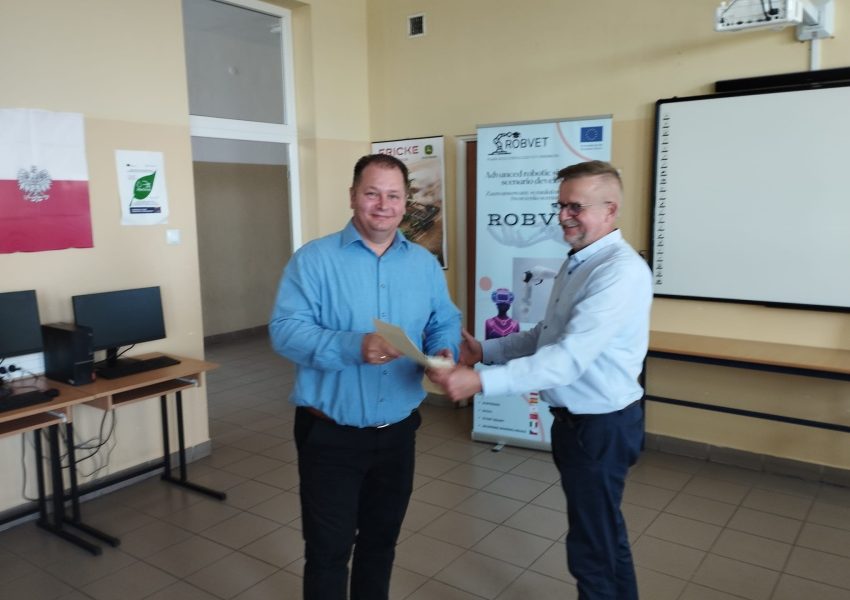Second Project Meeting – Espinho (Portugal) & Wysokie Mazowieckie (Poland)
..
The second transnational project meeting of the ROBVET project took place simultaneously in Espinho, Portugal, hosted by CEPROF, and Wysokie Mazowieckie, Poland, hosted by CKZ, with both venues connected via videoconference. This meeting allowed partners to review project progress, address key tasks related to management, planning, and dissemination, and advance the development of the robotic demonstrators.
Participants:
-
In Espinho, Portugal: CEPROF (Portugal), IES Pablo de Olavide (Spain), Synthesis (Cyprus), Hi-Sac (Turkey).
-
In Wysokie Mazowieckie, Poland: CKZ (Poland), AIJU (Spain), Start Smart (Italy), ARP (Czech Republic).
-
The meeting began with an official welcome at both locations, where IES Pablo de Olavide, as the project coordinator, presented updates on the project’s administrative and financial status. The timeline, work packages, and pending tasks were reviewed, emphasizing the importance of submitting all required documentation for the interim report.
During the technical session, each partner presented the status of their demonstrators using presentations, videos, and initial prototypes. Participants reviewed technical aspects of the scenarios under development and discussed challenges related to their implementation in educational centers. Specific deadlines were agreed upon for delivering the first demonstrators and their associated videos.
The communication and dissemination plan was presented by Synthesis, highlighting the use of social media platforms such as Facebook and YouTube, as well as the creation of specific content for the project website and institutional pages of the partners. The plan was unanimously approved, with clear timelines and responsibilities assigned to each partner.
Throughout the discussion, the importance of maintaining a consistent visual identity was emphasized, ensuring that the Erasmus+ and ROBVET logos were integrated into all dissemination materials. Partners were also reminded to document dissemination activities accurately and ensure compliance with Erasmus insurance requirements for participants in mobilities.
Key agreements included:
-
Setting dates for upcoming trainings and transnational meetings, ensuring smooth logistical and technical coordination among partners.
-
Approving the communication plan for inclusion in the interim report.
-
Committing to finalize the first demonstrator scenario and its associated video in each institution to maintain consistency in the project’s next steps.
